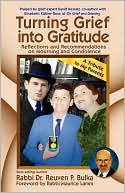Category Books
- Fiction Books & Literature
- Graphic Novels
- Horror
- Mystery & Crime
- Poetry
- Romance Books
- Science Fiction & Fantasy
- Thrillers
- Westerns
- Ages 0-2
- Ages 3-5
- Ages 6-8
- Ages 9-12
- Teens
- Children's Books
- African Americans
- Antiques & Collectibles
- Art, Architecture & Photography
- Bibles & Bible Studies
- Biography
- Business Books
- Christianity
- Computer Books & Technology Books
- Cookbooks, Food & Wine
- Crafts & Hobbies Books
- Education & Teaching
- Engineering
- Entertainment
- Foreign Languages
- Game Books
- Gay & Lesbian
- Health Books, Diet & Fitness Books
- History
- Home & Garden
- Humor Books
- Judaism & Judaica
- Law
- Medical Books
- New Age & Spirituality
- Nonfiction
- Parenting & Family
- Pets
- Philosophy
- Political Books & Current Events Books
- Psychology & Psychotherapy
- Reference
- Religion Books
- Science & Nature
- Self Improvement
- Sex & Relationships
- Social Sciences
- Sports & Adventure
- Study Guides & Test Prep
- Travel
- True Crime
- Weddings
- Women's Studies
Turning Grief Into Gratitude »

Authors: Reuven P. Bulka, Maurice Lamm
ISBN-13: 9780973252361, ISBN-10: 0973252367
Format: Paperback
Publisher: Paper Spider
Date Published: February 2007
Edition: (Non-applicable)
Author Biography: Reuven P. Bulka
Book Synopsis
A friends dies. What do you say to comfort his family? How do you overcome your own grief after the passing of a loved one?
David Kessler, top grief expert and co-author with the late Elizabeth Kübler-Ross of On Grief and Grieving, explains: "Grief is the reflection of the love we share in life. This book [Turning Grief into Gratitude] brilliantly walks with us in our grief and helps us hang on to that love." "Rabbi Reuven Bulka," adds Kessler, "has given us a personal, compassionate and helpful look into the world of grief."
After over 35 years of consoling and counseling mourners as a rabbi and psychologist, Rabbi Dr. Reuven P. Bulka takes you on an insightful journey through the intricacies of his grieving following the death of his parents, and illustrates how one can help oneself and others to turn grief into gratitude, and offers practical advice on what to do and say to a mourner, thereby easing a lot of the awkwardness many of us face in such situations.
Publishers Weekly
Bulka (Chicken Soup with Chopsticks), a rabbi and psychologist, blends personal stories with practical advice in this brief memoir. Despite the self-helpish title, it's more an autobiography than a how-to manual for either mourners or those who wish to comfort them. The first half of the book is primarily a love letter to Bulka's parents, who passed away within weeks of each other in March 2006, followed just a few weeks later by Bulka's mother-in-law. The rabbi had already endured his share of mourning, having lost an infant son years before to SIDS and his first wife to cancer. Bulka speaks lovingly, even hagiographically, of his deceased parents, and then turns in chapter four to questions of grief and mourning etiquette. His discussions of Jewish mourning rituals are helpful, though some readers will wish for more detail. His final chapter on "How to Console" will be valuable to those who wish to offer comfort but are terrified of saying something inappropriate. ("Those coming to visit mourners will need to think about what they will say before they come calling," he advises.) Jewish readers who have lost one or both parents will find consolation in this warm and deeply personal guide. (Feb. 20)
Table of Contents
Subjects
 Religious Biography
Religious Biography  Judaism - Biography
Judaism - BiographyBiography
 All Biography
All Biography  Peoples & Cultures - Biography
Peoples & Cultures - BiographyBiography
 All Biography
All Biography  Religious Biography
Religious BiographyChristianity
 Judaism & Judaica
Judaism & Judaica  Jewish Life
Jewish LifeChristianity
 Judaism & Judaica
Judaism & Judaica  Judaism - Biography
Judaism - BiographyChristianity
 Judaism & Judaica
Judaism & Judaica  Rabbinate
RabbinateChristianity
 Religious Biography
Religious Biography  Judaism - Biography
Judaism - BiographyJudaism & Judaica
 Jewish Life
Jewish Life  Psychological Self - Help & Self - Improvement - Jewish Life
Psychological Self - Help & Self - Improvement - Jewish LifeNonfiction
 Social Sciences
Social Sciences  Jewish Studies
Jewish StudiesReligion Books
 Judaism & Judaica
Judaism & Judaica  Jewish Life
Jewish LifeReligion Books
 Judaism & Judaica
Judaism & Judaica  Judaism - Biography
Judaism - BiographyReligion Books
 Judaism & Judaica
Judaism & Judaica  Rabbinate
RabbinateReligion Books
 Religious Biography
Religious Biography  Judaism - Biography
Judaism - BiographyScience & Nature
 Social Sciences
Social Sciences  Jewish Studies
Jewish StudiesSelf Improvement
 Emotional Healing
Emotional Healing  Death, Grief & Bereavement
Death, Grief & BereavementSelf Improvement
 See All
See All  Self - Improvement
Self - ImprovementSocial Sciences
 Jewish Studies
Jewish Studies  Jewish - Biography
Jewish - BiographySocial Sciences
 Jewish Studies
Jewish Studies  Jewish Life
Jewish LifeChristianity
 Christianity
Christianity  Religious Biography
Religious BiographyChristianity
 Christianity
Christianity  All Religion
All ReligionNonfiction
 Biography
Biography  Religious Biography
Religious BiographyNonfiction
 Biography
Biography  All Biography
All BiographyNonfiction
 Religion
Religion  Religious Biography
Religious BiographyNonfiction
 Religion
Religion  All Religion
All ReligionReligion Books
 Christianity
Christianity  Religious Biography
Religious BiographyReligion Books
 Christianity
Christianity  All Religion
All Religion
